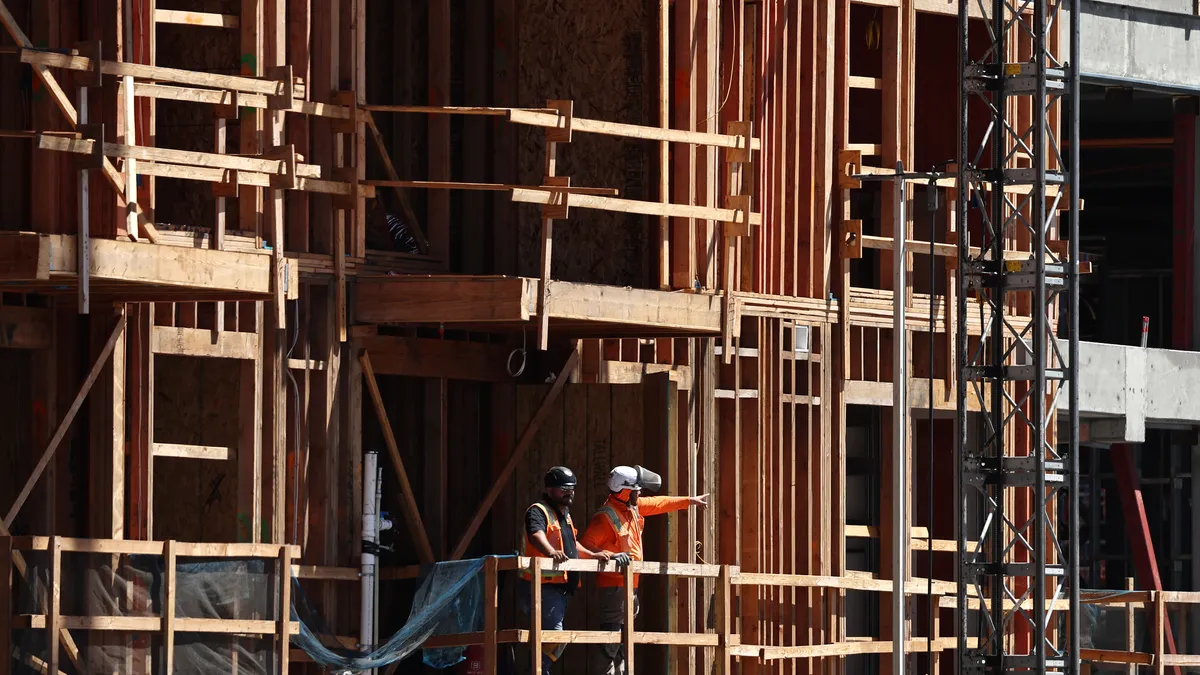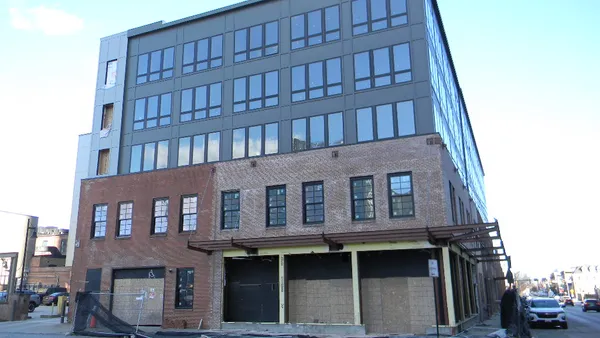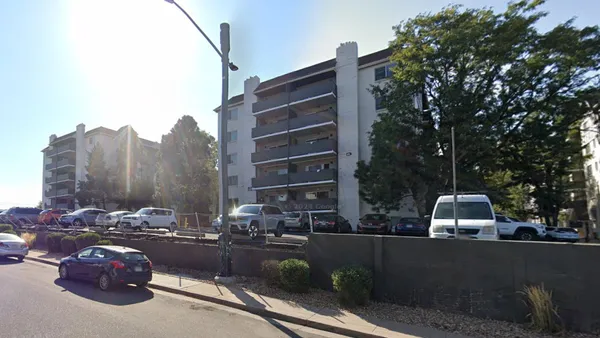Dive Brief:
- The National Housing Crisis Task Force on Monday released its “Federal Housing Policy Agenda,” an 81-page document containing 40 policy recommendations for the next presidential administration and Congress to tackle the nation’s shortage of affordable housing.
- The recommendations from the group of 28 public, civic and corporate leaders range from appropriating $100 billion to rehabilitate public and subsidized affordable housing to using federal land for housing development.
- “Our job now is to ensure this policy agenda gets into the right hands and leads to executive actions and enacted legislation in 2025,” National Housing Crisis Task Force Director Benjamin Preis said in a statement.
Dive Insight:
A record number of renters are spending 30% or more of their income on rent, and the median home price relative to the median income across the U.S. is at an all-time high. Meanwhile, a record number of people are experiencing homelessness. Those are the numbers Anthony Orlando, associate professor in the department of finance, real estate and law at California State Polytechnic University, Pomona, cited at a SciLine media briefing on affordable housing last week.
“I don’t think the word ‘crisis’ is overused when you look at statistics like this,” Orlando said.
The National Housing Crisis Task Force launched in July as a project of Drexel University’s Nowak Metro Finance Lab and Accelerator for America, an organization that supports local leaders. The task force is co-led by Republican Utah Gov. Spencer Cox; Atlanta Mayor Andre Dickens and Cleveland Mayor Justin Bibb, both Democrats; and Susan Thomas, president of Fifth Third Community Development Corp.
The task force’s federal policy proposals are wide-ranging, but one of its primary arguments is that the federal government must “fundamentally restructure” its organization to address the housing crisis.
The task force recommends that the next president establish a Housing Crisis Council with a leader directly reporting to the president and White House chief of staff. The Housing Crisis Council would coordinate between the many agencies with housing-related programs, local governments and the private and civic sectors. The group also imagines this council as responsible for drafting and promoting priority legislation and regulations.
Other policy proposals in the agenda fall under the following objectives:
- Reducing barriers to housing production and eliminating complexity, such as by updating Department of Housing and Urban Development programs to make it easier for cities and the private sector to finance affordable housing.
- Mobilizing federal capital for housing production and preservation, such as by providing grants for adaptive reuse projects and reforming the Low-Income Housing Tax Credit program.
- Innovating with an “industrial policy lens,” meaning the federal government must treat housing production as an industry and invest in improving that industry.
- Providing a housing safety net for households to ensure they can always find decent, stable, affordable housing. Policy recommendations under this objective include investing billions to end homelessness through various measures and creating a tax credit for low- and moderate-income renters who are rent-burdened.
The task force plans to release a playbook by July 2025 highlighting state and local solutions to address the housing crisis. It will also convene roundtables and exhibitions with national leaders and associations, local and state stakeholders, the private sector and civic leaders.












